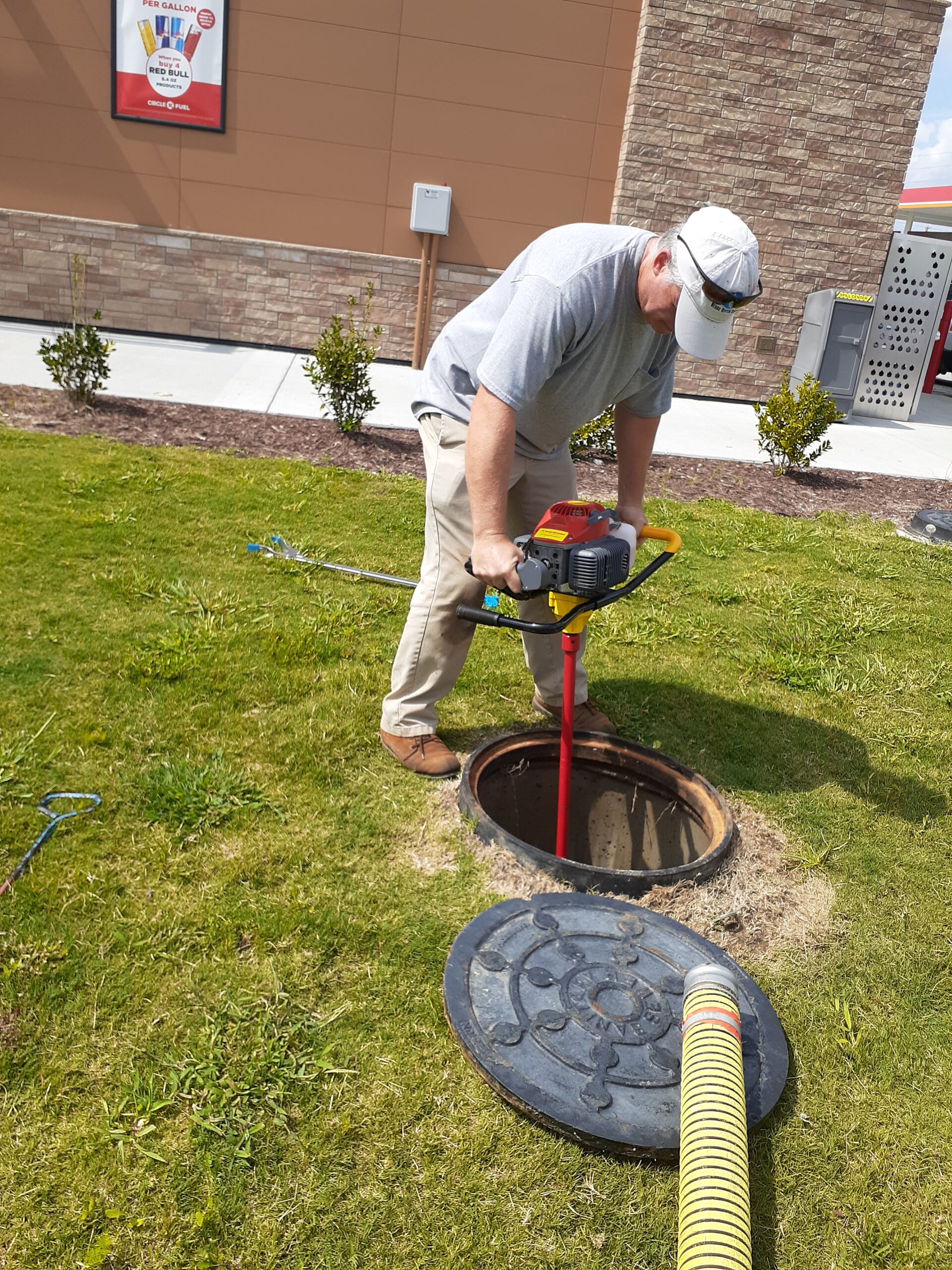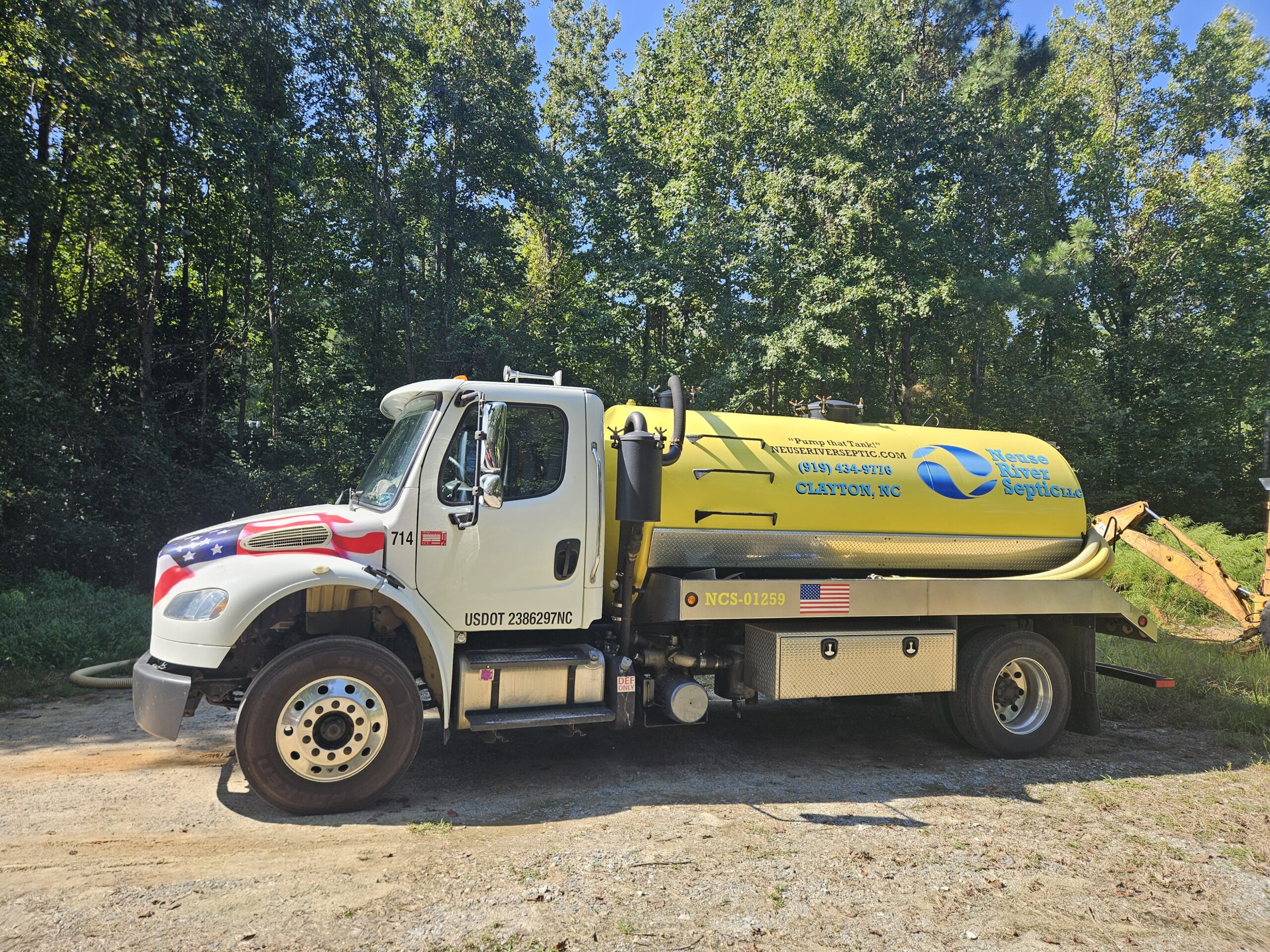Emergency Service Available
“Pump that Tank!”

Neuse River Septic – Clayton, NC (919) 434-9776
Residential & Commercial Septic Tank Pumping
Quality Septic Tank Pumping & Cleaning & Septic Tank Maintenance in Clayton, NC, Southern Wake 27603, 27610, Johnston County, Clayton, Garner, Wendell, Archer Lodge, & Smithfield. We service most towns within 15 miles of Clayton, NC.
All Septic Tanks Need Periodic Pumping – No Exceptions
Septic maintenance is very important for a clean environment for everyone. I enjoy educating my customers and getting the job done right. Most tanks in NC are two-chamber tanks, and we flush and vacuum both sides of your septic tank every time. If there is an effluent filter in your septic tank, I clean it at no extra charge.
This Comparison Could Save You a Load of Money in Repairs!
Compare an automobile to a septic system: The car’s engine is very important. This would never be disputed because, without an engine, the car is useless.
We all know that an engine needs periodic oil changes to keep running. If you don’t change the oil, the car will not last. We all know this as a fact. If you change the oil too frequently, you waste a small amount of money, but you don’t have to worry about the motor failing to last. If you never change the oil, then the car starts smoking and losing horsepower, eventually failing, and the engine is destroyed. How expensive is an engine?
Septic tanks are the engine of the septic system. They need periodic pumping out of the solids in the tank. If you pump the solids out when they need to, then your system runs smoothly and could last a lifetime. If you don’t pump the solids out of the septic tank, then the tank will eventually stop processing, and the rest of the system will be impacted and fail. This is a fact. It could take years before you see the damage, but it will happen. I am not sure that I would like to roll the dice on that one.
Pumping the tank more frequently than needed won’t hurt the septic system, but if you wait too long, it will hurt the septic system, and it will fail. Don’t get caught with your pants down and no place to go… “PUMP THAT TANK!”
Look Here for Important Info:
DO NOT flush any flushable wipes, paper towels, or facial tissues down the toilet, and do not pour any fats, oils, or grease down the sink. This is the basic info on pumping septics that I send to my customers who ask, “How long should I wait to pump the septic tank?”
One hundred gallons of solids per person are deposited in a septic tank over a year’s time through toilets, sinks, laundry, and dishwashing machines. Normal use of water is 50 -70 gallons of water per day per person. The septic system treats the water, and the solids stay in the tank.
The following is the frequency of septic tank pumping that should be used according to the above information, assuming a 1000-gallon two-chamber septic tank (most frequently used in NC) (this is without a garbage disposal in which you would need more frequent cleaning):
Please note that this is just a general rule. People who work from home, retired individuals, or homeschoolers should increase pumping frequencies to maybe a half year earlier using the schedule below.

2 people living in the home produce 200 gallons of solids a year. It takes 5 years before the septic tank needs cleaning.
3 people living in the home produce 300 gallons of solids a year. It takes 3.5 years before the septic tank needs cleaning.
4 people living in the home produce 400 gallons of solids a year. It takes 2.5 years before the tank needs to be cleaned.
5 people living in the home produce 500 gallons of solids a year. It takes 2 years before the tank needs to be cleaned.
6 or 7 people living in the home really should consider pumpouts at 1.5 years. Most systems are maxed out at 6 people, so consider your water usage.
